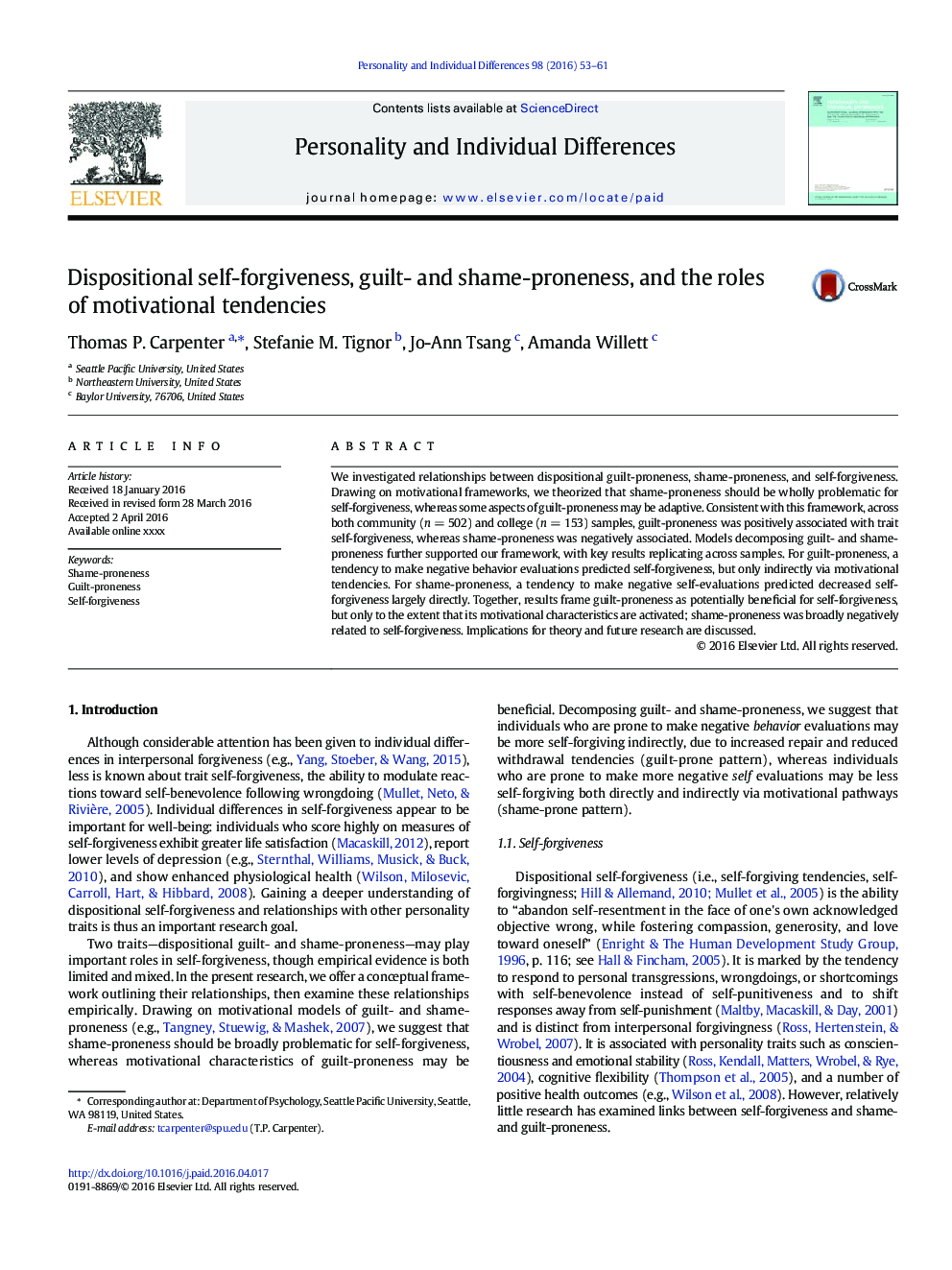| کد مقاله | کد نشریه | سال انتشار | مقاله انگلیسی | نسخه تمام متن |
|---|---|---|---|---|
| 7249900 | 1472020 | 2016 | 9 صفحه PDF | دانلود رایگان |
عنوان انگلیسی مقاله ISI
Dispositional self-forgiveness, guilt- and shame-proneness, and the roles of motivational tendencies
ترجمه فارسی عنوان
خود-بخشودگی، گناه و شرم آور بودن و نقش گرایش های انگیزشی
دانلود مقاله + سفارش ترجمه
دانلود مقاله ISI انگلیسی
رایگان برای ایرانیان
کلمات کلیدی
شرم آور بودن، گناه، خود بخشش،
موضوعات مرتبط
علوم زیستی و بیوفناوری
علم عصب شناسی
علوم اعصاب رفتاری
چکیده انگلیسی
We investigated relationships between dispositional guilt-proneness, shame-proneness, and self-forgiveness. Drawing on motivational frameworks, we theorized that shame-proneness should be wholly problematic for self-forgiveness, whereas some aspects of guilt-proneness may be adaptive. Consistent with this framework, across both community (n = 502) and college (n = 153) samples, guilt-proneness was positively associated with trait self-forgiveness, whereas shame-proneness was negatively associated. Models decomposing guilt- and shame-proneness further supported our framework, with key results replicating across samples. For guilt-proneness, a tendency to make negative behavior evaluations predicted self-forgiveness, but only indirectly via motivational tendencies. For shame-proneness, a tendency to make negative self-evaluations predicted decreased self-forgiveness largely directly. Together, results frame guilt-proneness as potentially beneficial for self-forgiveness, but only to the extent that its motivational characteristics are activated; shame-proneness was broadly negatively related to self-forgiveness. Implications for theory and future research are discussed.
ناشر
Database: Elsevier - ScienceDirect (ساینس دایرکت)
Journal: Personality and Individual Differences - Volume 98, August 2016, Pages 53-61
Journal: Personality and Individual Differences - Volume 98, August 2016, Pages 53-61
نویسندگان
Thomas P. Carpenter, Stefanie M. Tignor, Jo-Ann Tsang, Amanda Willett,
